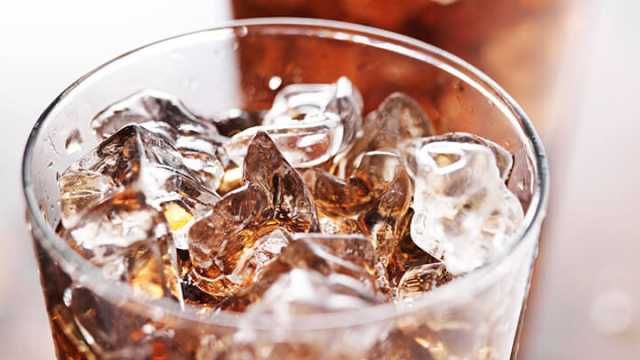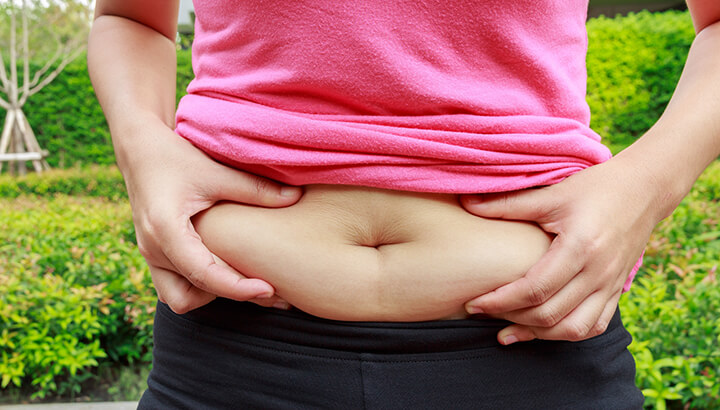
For many years now, diet sodas and other diet beverages have been marketed as “healthier” alternatives to their sugary counterparts. People who are trying to lose weight, as well as those with blood sugar issues, are often told that diet soda will be a great replacement for sugary beverages, as it contains far less (or no) calories and does not contain sugar.
Sugar is indeed extremely dangerous, especially in large doses. No one needs to be drinking sodas and flavored drinks filled with heaps of the white poison — that’s a given. However, despite the hype, diet beverages are by no means healthier. They may not contain sugar, and they may be low in calories, but there is a definite dark side. What these drinks do contain is a host of other unhealthy ingredients.
Here are ten solid reasons to keep diet beverages out of your fridge, and out of your glass.
1. Diet soda often contains aspartame
Aspartame is one of the most commonly-used non-calorie sweeteners in diet beverages. Aspartame has been produced by Monsanto for years, and it’s made with cultures of genetically engineered E. Coli bacteria. If that sounds scary on the face of it, that’s because it is.
In their book, Prescription for Nutritional Healing, James and Phyllis Balch refer to aspartame as a “chemical poison.” This substance is the reason behind more than 75 percent of negative reactions to food additives reported to the FDA. Of the long list of deleterious health effects associated with aspartame, just a few include: memory loss, personality changes, anxiety, joint pain, loss of energy, slurred speech, diabetes, seizures, rashes, blurred vision, hyperactivity and symptoms akin to those of heart attacks.
Additionally, early research on aspartame linked aspartic acid to holes in the brains of mice. This is one sweetener that you definitely do not want to be ingesting.
2. Other artificial sweeteners can be dangerous, as well
Even if a diet beverage does not contain aspartame, it very likely contains another type of non-calorie artificial sweetener. While aspartame may be the worst of the bunch, the others are by no means assured to be safe.
Sucralose, sold under the label Splenda, is a chlorinated version of sucrose. This sweetener has long been touted as the “safest” artificial sugar replacement option. However, it is linked to leukemia and has also been found to raise blood sugar levels. Saccharin, also known as Sweet n’ Low, is linked to bladder cancer and digestive disturbances. The list goes on.
Check the labels on your drinks carefully. If it contains an artificial sweetener, it’s simply not healthy.
3. Diet soda can lead to metabolic syndrome and belly fat

It’s truly ironic that diet beverages are marketed to people trying to lose weight and/or control their blood sugar. These beverages have actually been found to contribute to metabolic syndrome and dangerous visceral fat (a.k.a. belly fat). Carrying fat around your middle is linked to a greater risk of heart disease, insulin resistance and mortality.
A 2015 analysis looked over a decade of data on nearly 800 people ages 65 and older, compiled by the San Antonio Longitudinal Study of Aging (SALSA). Results of the analysis showed that people who drank diet soda, even occasionally, packed on almost three times as much visceral fat as people who did not drink diet soda. Summarizing their results, the study authors wrote:
“In a striking dose-response relationship, increasing DSI [diet soda intake] was associated with escalating abdominal obesity, a potential pathway for cardiometabolic risk in this aging population.”
4. Diet soda is linked to type 2 diabetes
Diet soda’s link to metabolic syndrome also makes it a potential risk factor for raising blood sugar and paving the way for type 2 diabetes. A 2009 study published in Diabetes Care, a journal of the American Diabetes Association, examined this risk. Researchers compared diet soda intake and incidences of type 2 diabetes, based on food and beverage questionnaires.
Based on their analysis, the researchers found a correlation between drinking diet soda and a greater risk of type 2 diabetes. On their results, the study authors wrote:
“Although these observational data cannot establish causality, consumption of diet soda at least daily was associated with significantly greater risks of select incident metabolic syndrome components and type 2 diabetes.”
Many prediabetics and diabetics often switch to diet soda to avoid the sugar content. However, this research found that diet soda may be harmful, as well. This should give us some serious pause.
5. Artificial sweeteners may have negative effects on a developing fetus
Pregnant or breastfeeding women who drink diet soda may be putting their children at risk for metabolic illnesses. The authors of a 2014 study published in the journal Reproductive Toxicology wrote:
“The nutritional environment during embryonic, fetal and neonatal development plays a crucial role in the offspring’s risk of developing diseases later in life. Although non-nutritive sweeteners (NNS) provide sweet taste without contributing to energy intake, animal studies showed that long-term consumption of NSS, particularly aspartame, starting during the perigestational period may predispose the offspring to develop obesity and metabolic syndrome later in life.”
Upon reviewing data on this topic, the study authors concluded:
“The data reviewed herein suggest that NNS consumption by pregnant and lactating women should be looked with particular caution and requires further research.”
6. Diet soda can wreak havoc on your bones
Soda — both regular and diet — contains phosphoric acid. This substance can interfere with the body’s ability to absorb calcium. If the body cannot absorb calcium, bone health may suffer and conditions such as osteoporosis may result.
A 2014 study published in the FASEB Journal analyzed data regarding postmenopausal women’s hip fracture risk, as well as their consumption of soda. The study had a 30-year follow-up period, during which nearly 2,000 cases of hip fractures were noted. On the results of their analysis, the study authors wrote:
“Increasing soda consumption of all types may be associated with increasing risk of hip fracture in postmenopausal women.”
The study authors also noted that soda consumption has been associated with poor bone health in children. It seems that for both younger and older individuals, soda is a no-no for bone health.
7. Diet soda may lead to depression

It’s no secret that sugary sodas can lead to a sugar crash, characterized by a significant downturn in mood. But diet sodas which contain caffeine may also lead to symptoms of depression, especially in young people. A 2009 study published in the Journal of School Health analyzed the effects of caffeine on children and adolescents. The researchers found:
“In particular, youth appear vulnerable to increased depressive symptoms with increasing caffeine consumption.”
8. Diet soda may hurt your kidneys
A 2011 study published in the Clinical Journal of the American Society of Nephrology analyzed the effects of both sugary soda and artificially sweetened soda on the kidney functionality of just over 3,300 women. The diet soda did not fare well at all in regards to kidney function. The study authors concluded:
“Consumption of ≥ 2 [greater than or equal to two] servings per day of artificially sweetened soda is associated with a 2-fold increased odds for kidney function decline in women.”
9. Diet soda could disrupt the balance of your microbiome
The phosphoric acid found in diet sodas upsets your stomach and slows your digestion. Artificial sweeteners used in any kind of diet beverage could mess with your gut bacteria as well. Your microbiome, a.k.a. your gut, is a delicate system of bacteria. The health of your microbiome is intrinsically interwoven with your immune system… so keeping it in balance is important.
A 2014 study published in the journal Nature tested lab mice on the effects of artificial sweeteners on the gut environment. Researchers tested the effects on humans in another small study as well. The researchers found that artificial sweeteners led to glucose intolerances in both the mice and the humans. The study authors wrote:
“Here we demonstrate that consumption of commonly used NAS [non-calorie artificial sweetener] formulations drives the development of glucose intolerance through induction of compositional and functional alterations to the intestinal microbiota.”
10. Diet drinks can leave you dehydrated
Diet beverages are commonly high in sodium and many are high in caffeine. Both of these factors combined can leave you very dehydrated if you drink these beverages often. Dehydration is no joke. If you’ve ever experienced it, you know how awful it can feel. It can lead to nausea, vomiting, diarrhea and fever. These symptoms can persist long after you’ve started to rehydrate yourself with water.
So, there you have it. Ten reasons to stay away from diet beverages, preferably forever. Looking for something to drink? Well, first and foremost, your body needs water. Make sure to drink at least eight to ten glasses a day. Once you’ve got that covered, check out these healthy soda recipes. They contain no sugar, no artificial sweeteners, no additives. Plus, they’re easy to make!
— Tanya Rakhmilevich

